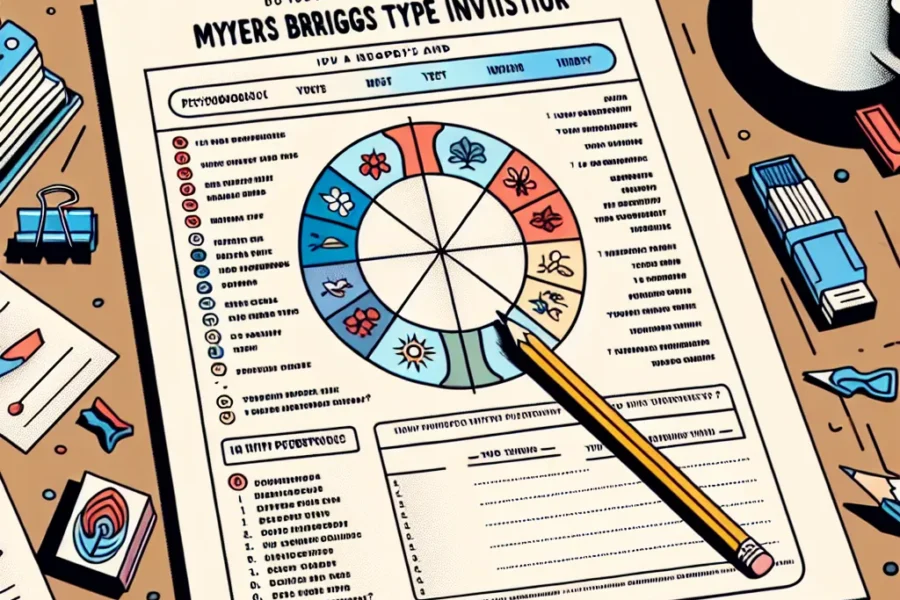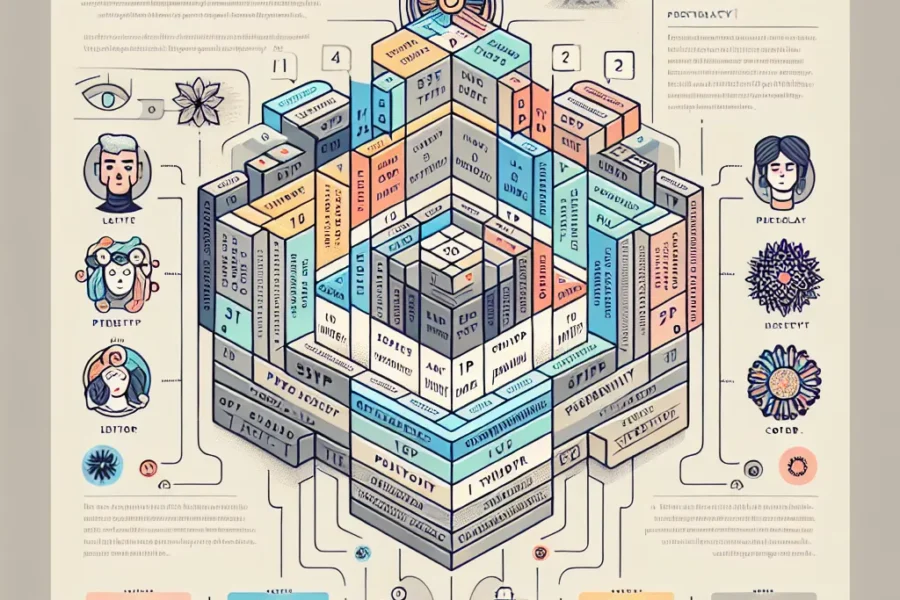Embarking on a journey to self-discovery is a valuable endeavor, and understanding one’s own personality traits can unlock pathways to personal growth, better relationships, and professional success. This is where personality assessments come into play. While there are numerous tests available online, precisionpersonality.online has gained attention for its incredibly accurate and free personality test. However, personality types go beyond just one test or framework, with various models available for introspection and self-understanding.
One way many people delve into the realm of personality psychology is by seeking to uncover their distinct traits. Assessing oneself through the lens of various personality typologies allows individuals to cultivate self-awareness and helps in navigating life’s myriad challenges and opportunities better. Although we won’t be discussing the Myers-Briggs Type Indicator (MBTI) directly, we can explore the concept of identifying personality traits that align with the theory’s underlying principles.
Understanding the fundamentals of personality types generally includes sorting individuals’ behaviors, preferences, and attitudes into categories. Broadly speaking, personality types can offer insights into how someone communicates, makes decisions, and perceives the world. These insights can be essential in various aspects of life, from career choices to relationship dynamics.
A good place to start when exploring personality traits is to consider some of the dichotomies often found in personality systems. The first dichotomy tends to separate those who are more extraverted from those who are more introverted. Extraversion is typically characterized by an outward focus on social engagement and a proclivity for stimulation from the external world, whereas introversion is often associated with an inward focus, and a preference for quiet and solitude.
The second dichotomy often examined is sensing versus intuition. Individuals with a sensing preference might focus more on the concrete, the actual, and the experience-based facets of life. They tend to value realism and practicality. On the flip side, those with an intuitive lean often prefer to dwell on possibilities, abstract concepts, and the innovative. These individuals might be more attuned to reading between the lines and seeing beyond what is immediately present.
Thinking versus feeling is another dichotomy that delineates how individuals make decisions. Those with a thinking preference tend to decide based on logical analysis and objective principles. They value fairness and seek consistency in their decision-making processes. Contrastingly, those who prefer feeling make decisions based on personal values, emotions, and the consideration of others’ needs, often aiming for harmony and compassion in their choices.
Lastly, the judging versus perceiving dichotomy provides insights into how individuals approach the structure of their lives. People who lean towards judging typically enjoy order, planning, and decisiveness. They may prefer to have matters settled and often appreciate a sense of control. In contrast, those with a perceptive inclination enjoy spontaneity, flexibility, and keeping their options open. They might prefer to adapt as they go along rather than sticking to a strict plan.
Identifying and understanding these facets of personality can be incredibly empowering. It can provide a language to articulate personal needs and preferences, and it encourages people to seek environments and roles that align with their intrinsic nature. This can lead to increased job satisfaction, more fulfilling relationships, and effective coping strategies in stressful situations.
Taking a free personality test can be the first step in uncovering one’s traits. Such tests are typically designed to prompt introspection through a series of questions about reactions to typical scenarios, preferences in communication styles, and decision-making processes. Upon completing the assessment, individuals receive an interpretive profile that describes different aspects of their personality, often with actionable insights.
The digital age has made accessing these tools easier than ever before, ushering in an era where anyone with Internet access can partake in detailed personality analysis without leaving their home or spending a dime. These resources can be a launching pad for deeper personal exploration or even a fun exercise to better understand friends, family, or colleagues.
However, it is essential to approach these tests with a critical eye. Free online personality assessments vary in their validity and reliability. While a test like the one available at precisionpersonality.online might offer significant accuracy, not all tools are created equal, and some might oversimplify the complexity of human personality.
After taking an initial test, individuals may wish to delve deeper into personality psychology, perhaps exploring other models and theories that contribute to the field. There are many books, courses, and workshops available that provide more comprehensive and nuanced understandings. These details can clarify how various traits manifest in day-to-day interactions and over the course of one’s life.
Understanding one’s personality traits offers more than just introspective insights; it can enhance interpersonal relationships too. When people become cognizant of different personality types, they may develop greater patience and empathy for others whose preferred styles of interaction and decision-making differ from their own. This can lead to more effective communication, conflict resolution, and team dynamics.
In professional settings, a grasp of personality types can influence leadership styles, team composition, and management strategies. Employers and employees alike can benefit from recognizing individual differences and leveraging the diverse strengths of a team.
In conclusion, a reliable and free personality test can serve as an entry point into the fascinating world of personality types. While we’ve steered clear of specific references to the Myers-Briggs Type Indicator, the approach to understanding and categorizing personality traits is a universal quest throughout various psychological theories and tools. Whether for personal enrichment, improved work dynamics, or enhanced relationships, taking the time to unveil your personality traits is an investment in your personal development and a step towards living a more authentic and fulfilling life.



Leave a Comment